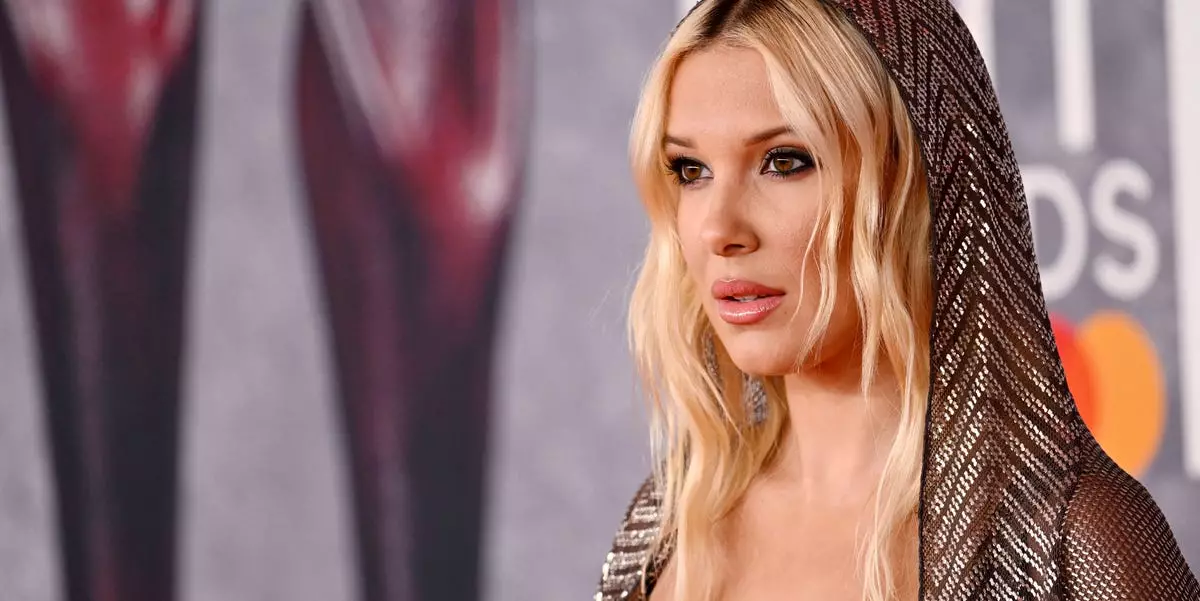Millie Bobby Brown has become an iconic figure in modern entertainment, capturing the hearts of audiences worldwide since her debut at just ten years old. Recently, she made headlines not merely for her roles but for a surprising personal revelation: her name isn’t what everyone thought. As she shared in a candid interview with Buzzfeed UK, her real name is Millie Bonnie Brown, noting she switched her middle name from “Bonnie” to “Bobby” for seemingly light-hearted reasons. This little tidbit reveals a youthful spirit unfazed by the glamorous front that Hollywood often presents. Yet, beneath the sparkle of celebrity is a profound conversation about identity and the pressures that accompany public scrutiny.
Growing Up Under the Microscope
As she transitions into adulthood, Brown finds herself at the crossroads of youth and maturity—a path that many young stars navigate. The public often forgets that child stars are, in fact, just that—children who are growing and evolving. Brown recently addressed the trolling she faced regarding her new blonde hair, affirming that mental health and self-acceptance are far more important than any magazine cover or online critique. With her candid Instagram post, she tackled the painful reality that often accompanies fame, shedding light on an issue that transcends her personal experience.
In her poignant message, she highlighted a cultural hypocrisy—that while society clamors for the empowerment of young women, it simultaneously indulges in the dehumanization of these very individuals. The immense pressure to maintain an unrealistic standard of beauty can be suffocating. Brown’s refusal to conform to the stagnant image that people have of her is not just rebellious; it challenges the very framework of an industry that thrives on the commodification of youth.
Turning Criticism into Advocacy
Brown’s vulnerability is turned into activism as she articulates the detrimental effects of scrutinizing public figures, especially young women. What she calls “bullying disguised as journalism” sheds light on a disturbing trend that primarily relies on negative commentary for clicks and engagement. It’s alarming and frankly pathetic that some articles dissect a young woman’s appearance for amusement, often at the hands of other women. The paradox of empowerment devolves into a toxic cycle where public figures—the girls in the spotlight—are pitted against each other by society itself.
In a world where negativity often garners more attention than positivity, Brown challenges her audience to reflect on their impulse to criticize. Her question lingers: why is it easier for people to unleash vitriol than to offer a simple compliment? This dialogue forces an examination of society’s values and highlights how deep-seated insecurities manifest into criticism.
The Journey Toward Self-Acceptance
Through Millie’s brave stance, she encourages other young women to champion their identity without seeking approval from an audience that doesn’t understand their journey. She embodies the essence of growth, gently pushing back against an industry that insists on confinement rather than freedom. In a society where girls are often taught to downplay their aspirations and stifle their voices, Brown’s message resonates deeply: “I refuse to be shamed for how I look, how I dress, or how I present myself.”
This powerful declaration emphasizes an essential truth—every individual has the right to dictate their path, free from societal judgment. It’s a reminder that authenticity is far more potent than pretense, and the battle for self-acceptance can often feel like a guerrilla war against the caricature of who we are expected to be.
Inspiring Change Through Conversation
Ultimately, Millie Bobby Brown is more than just a rising star in Hollywood; she is a voice for her generation. By bravely articulating her experiences, she invites others to join her in a broader dialogue about acceptance, empowerment, and the journey to becoming one’s authentic self. Brown is setting the stage not just for personal growth but for an entire culture shift that values compassion over cruelty. As we navigate the complexities of identity in the digital age, her story serves as a beacon of hope for young women everywhere—reminding them that the true measure of success is living life on one’s own terms.

